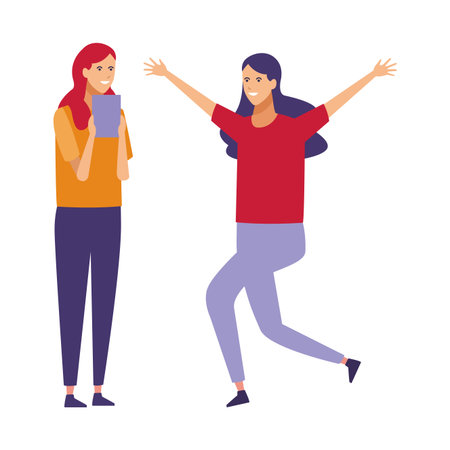Understanding Stigma and Stereotypes in the UK Context
In British society, attitudes towards injury and mental health have long been shaped by a blend of tradition, cultural norms, and historical influences. For many years, there has been a tendency to view physical injuries as something more legitimate or visible, while issues relating to mental health were often overlooked or misunderstood. This has led to the persistence of certain stereotypes—such as the idea that those struggling with their mental health are simply “not trying hard enough” or that mental illness is a sign of personal weakness. Historical influences, including Britain’s famous “stiff upper lip” mentality, have contributed to a culture where emotional vulnerability is sometimes seen as something to be hidden or even ashamed of. Such misconceptions create barriers for people seeking support, whether they are coping with an injury or navigating mental health challenges. As we move forward as a society, it is important to gently unpick these outdated beliefs and foster an environment where open discussion and empathy are encouraged.
2. Everyday Language: How Words Shape Attitudes
Language is an integral part of British culture, and the everyday words we choose can have a profound effect on how we perceive injury and mental health. In the UK, certain phrases and colloquialisms—often used without much thought—can either reinforce negative stereotypes or serve as a bridge to greater understanding. For example, terms like “pull yourself together” or “just get on with it” are commonly heard but may inadvertently minimise the experiences of those struggling with physical or mental health challenges. On the other hand, language that acknowledges someone’s struggles and offers support, such as “I’m here if you’d like to talk,” can foster inclusion and compassion.
The Impact of British Vernacular
British vernacular is colourful and nuanced, reflecting regional diversity as well as shared cultural attitudes. While humour and understatement are often valued, especially when discussing difficult topics, they can sometimes mask genuine distress or discourage people from seeking help. For example, referring to someone who is recovering from injury as being “a bit poorly” or describing depression as “feeling a bit down” may make it harder for individuals to acknowledge the seriousness of their condition or reach out for support. At the same time, more direct language can be empowering when used appropriately.
Common Phrases: Harmful vs Supportive
| Harmful Phrase | Supportive Alternative |
|---|---|
| “Man up” | “It’s okay to ask for help” |
| “Don’t make a fuss” | “Your feelings matter” |
| “She’s just attention-seeking” | “Let’s listen to what she needs” |
| “You’ll get over it” | “Recovery takes time” |
| “He’s not right in the head” | “He’s facing some challenges right now” |
Cultivating Awareness and Change
By reflecting on the words we use every day, both in our families and within our communities, we can start to challenge outdated attitudes and create safer spaces for honest conversations about injury and mental health. The simple act of choosing supportive language helps dismantle stigma and encourages those affected to seek help without fear of judgement. As British society continues to evolve in its understanding of wellbeing, each of us has a role to play in shaping a more compassionate narrative—one conversation at a time.

3. Media Representation and Public Perception
The way injury and mental health are portrayed in the UK media plays a significant role in shaping public perception. Often, news stories and television dramas focus on the most extreme cases, highlighting either moments of crisis or tales of dramatic recovery. While these narratives can raise awareness, they may also unintentionally reinforce harmful stereotypes. For example, individuals with mental health challenges are sometimes depicted as unpredictable or even dangerous, rather than as people experiencing a common and treatable health issue. Similarly, injuries are frequently shown as sudden setbacks from which people must simply bounce back, overlooking the long-term impact and rehabilitation process.
Tabloid headlines can be particularly influential in framing conversations around these issues. Sensationalist language tends to stigmatise those affected by injury or mental ill-health, suggesting weakness or personal failure. This shapes public attitudes, making it harder for people to seek help or discuss their experiences openly. On the other hand, there has been positive movement in recent years with high-profile campaigns by organisations such as Mind and Time to Change, which have encouraged more balanced reporting and challenged outdated views.
It is essential to encourage responsible journalism that reflects the true diversity of experiences surrounding injury and mental health. By sharing real stories from across British society—including voices often left out of mainstream coverage—the media can help foster empathy and understanding. As public perception gradually shifts towards greater acceptance, individuals affected by injury or mental health difficulties may feel less isolated and more able to access the support they need.
4. Social Pressures and the British ‘Stiff Upper Lip’
The phrase ‘stiff upper lip’ has long been associated with British culture, embodying values such as resilience, privacy, and emotional restraint. These qualities have shaped the national identity and are often seen as admirable, particularly during times of adversity. However, when it comes to injury and mental health, these same cultural norms can unintentionally reinforce stigma and make it challenging for individuals to seek help or express vulnerability.
In everyday life, many people in the UK may feel pressure to maintain a composed exterior even when facing significant physical pain or emotional distress. This expectation is not only internal but also reinforced by social circles, workplaces, and wider society. The idea that one should “keep calm and carry on” can discourage open conversations about mental health and injuries, leading some individuals to suffer in silence rather than reach out for support.
The Impact of Social Norms on Help-Seeking Behaviour
| Social Value | Positive Aspect | Potential Drawback |
|---|---|---|
| Resilience | Encourages perseverance during tough times | May prevent people from acknowledging their struggles |
| Privacy | Respects personal boundaries and independence | Makes it harder to share personal difficulties or ask for help |
| Emotional Restraint | Promotes calmness in stressful situations | Discourages emotional expression, reinforcing stigma around mental health issues |
This table highlights how deeply ingrained values can both protect and hinder individuals dealing with injury or mental health challenges. While these traits can foster strength and autonomy, they may also contribute to a culture where asking for support is viewed as weakness rather than a sign of courage.
Towards a More Open Culture
Understanding the influence of the ‘stiff upper lip’ mentality is key in addressing stigma. By gently challenging traditional expectations and creating spaces for honest dialogue—whether in families, schools, or workplaces—the UK can move towards a more supportive environment. It’s important to remember that resilience does not mean carrying burdens alone; true strength often lies in recognising when help is needed and feeling safe enough to ask for it.
5. Support Systems: Breaking Down Barriers
When it comes to challenging stigma and stereotypes around injury and mental health, the importance of robust support systems cannot be overstated. In the UK, a growing number of initiatives and community groups are stepping up to bridge the gap and foster environments where individuals feel safe to share their experiences.
Community Initiatives Leading the Way
Across the country, organisations such as MIND and SAMH (Scottish Association for Mental Health) have been at the forefront of tackling stigma through education, peer support, and advocacy. Their campaigns often encourage honest conversations about mental health and recovery from physical injuries, gently reminding us all that there is strength in vulnerability. Localised programmes like Time to Change provide workshops and events in communities across England, supporting people to speak openly about their challenges without fear of judgement.
The Role of Peer Support Groups
Peer-led groups such as The Mix for young people and Combat Stress for veterans offer tailored spaces where individuals can connect with others who understand their unique struggles. These groups not only reduce feelings of isolation but also serve as powerful tools for breaking down misconceptions surrounding both visible and invisible injuries. By sharing stories and lived experiences, they help normalise conversations around topics that were once considered taboo.
Best Practices from UK Organisations
A best practice gaining traction involves training staff in workplaces, schools, and sports clubs to become Mental Health First Aiders. This equips more people with the skills to listen empathetically and signpost to appropriate help—creating a ripple effect throughout communities. Additionally, collaborations between NHS services and local charities are making support more accessible through drop-in sessions, online resources, and helplines.
Together, these support systems are gradually eroding long-standing barriers, empowering individuals to seek help early and fostering a culture of compassion and openness. As we continue to highlight these efforts across the UK, it becomes clear that collective action truly does make a difference in challenging outdated attitudes towards injury and mental health.
6. Encouraging Compassion and Advocacy
Promoting understanding, empathy, and advocacy within British communities is essential in addressing the stigma and stereotypes that surround injury and mental health. Everyone—whether you are an individual living with an injury, a carer supporting someone, or a professional working in health and social care—has a valuable role to play in creating a kinder, more inclusive environment.
Practical Advice for Individuals
If you are living with an injury or mental health challenge, try to be gentle with yourself and recognise that asking for help is a sign of strength. Sharing your experiences with trusted friends or support groups can help reduce feelings of isolation. Remember, you are not alone—many others have similar experiences, even if they don’t always talk about them openly.
Guidance for Carers
As a carer, it’s important to listen without judgement and offer reassurance. Small acts of kindness—like making a cup of tea or simply sitting together—can go a long way. Encourage open conversations and remind your loved one that their feelings are valid. Educate yourself about available resources; organisations such as Mind or Carers UK provide helpful information tailored to the British context.
Tips for Professionals
Professionals in healthcare, social work, or education can foster understanding by using compassionate language and respecting each person’s dignity. Attending training on mental health awareness or trauma-informed care can deepen your empathy and skills. Advocate for your clients or patients by challenging discriminatory attitudes when you encounter them, and ensure that support services are accessible to everyone regardless of background.
Building Supportive Communities
Community groups, local councils, and faith organisations across the UK can help break down barriers by hosting workshops, coffee mornings, or peer support sessions where people feel safe to share their stories. Campaigns such as Time to Change have shown how public discussions can shift attitudes over time. By working together at every level—from neighbourhoods to national policy—we can create a society where compassion is at the heart of our response to injury and mental health.
Together We Make a Difference
Fostering empathy and advocacy isn’t always easy, but small steps add up. Whether it’s speaking kindly, listening actively, or challenging stereotypes when we see them, each action contributes to a more understanding Britain—one where no one has to face stigma alone.

